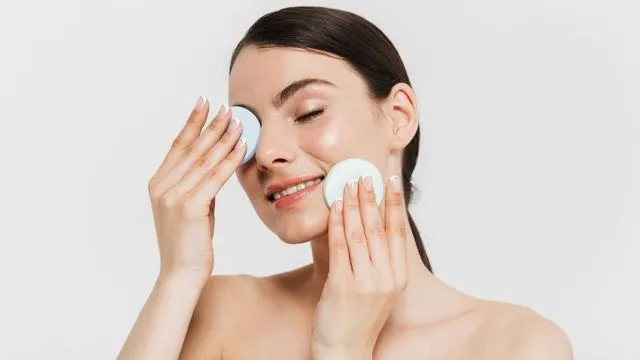- By Prerna Targhotra
- Sat, 25 May 2024 11:38 AM (IST)
- Source:JND
Numerous people struggle with pigmentation, dark spots, acne, and other skincare issues. Developing a healthy nighttime regimen can help eliminate these skincare issues. Using good skin care techniques before bed keeps your skin clear and prevents problems from arising. At night, the skin renews and revitalises itself and absorbs nutrients more effectively. Using nourishing skincare products and cures at night is the ideal way to get healthy, radiant skin. You should follow these healthy bedtime routines for beautiful, healthy skin.
Bedtime Skincare Rituals To Follow
Cleansing
Cleaning is an important component of skin care since it helps to purge the skin's layers of debris, bacteria, and dirt. To keep your hygiene routine consistent, wash your face with a light cleanser every time.
Face Toner
Using a face toner is a helpful step in your skincare routine to help get rid of dry and flaky skin. You can brighten your face, lessen the visibility of dark circles and blotches, change the pH of your skin, and provide your skin with the nutrients it needs by using a toner.
ALSO READ: Try These Easy Aloe Vera Hair Masks For Thick And Long Hair
Use Night Creams
For the face to be nourished and brightened from the inside out, night creams are a must. They lessen inflammation, smooth out the texture of the skin, promote the thinning of wrinkles, and increase skin moisture in parched regions.
Moisturise Your Skin
Since dehydrated skin is more likely to be dry and have skincare issues, staying hydrated is crucial for having healthy skin. If you wish to moisturise your skin, you must pay close attention to it. Therefore, remember to moisturise your skin frequently and sufficiently.
Apply Serum
Apply a few drops on the backs of your hands before spending money on any type of serum. Check to see if it leaves behind a sticky film or absorbs more slowly into your skin.
ALSO READ: 5 Convincing Reasons To Add Smoothies To Your Breakfast Meals In Summer
(Disclaimer: This article is for informational purposes only. It is not a substitute for professional advice, diagnosis or treatment.)

